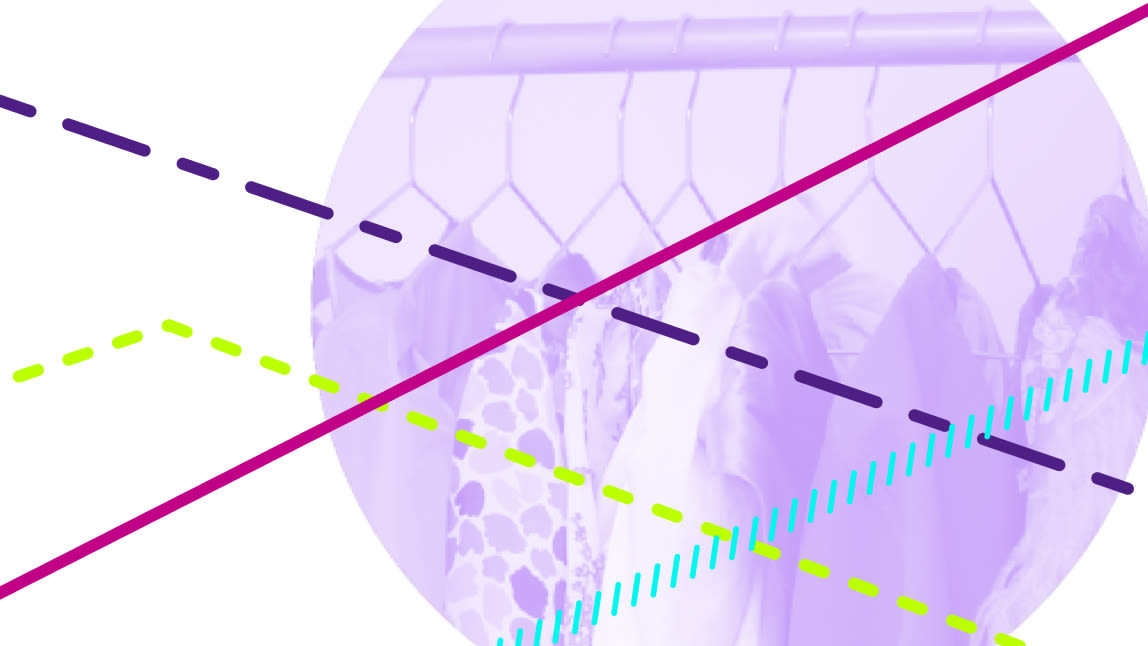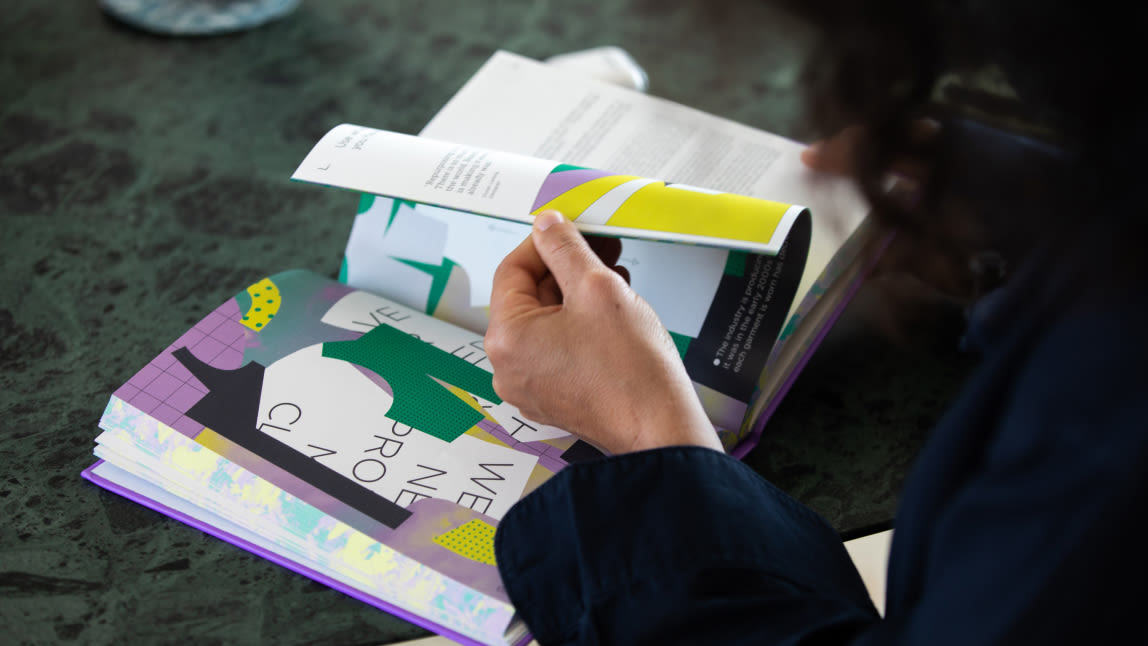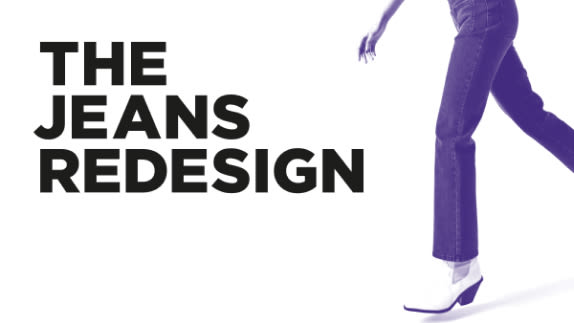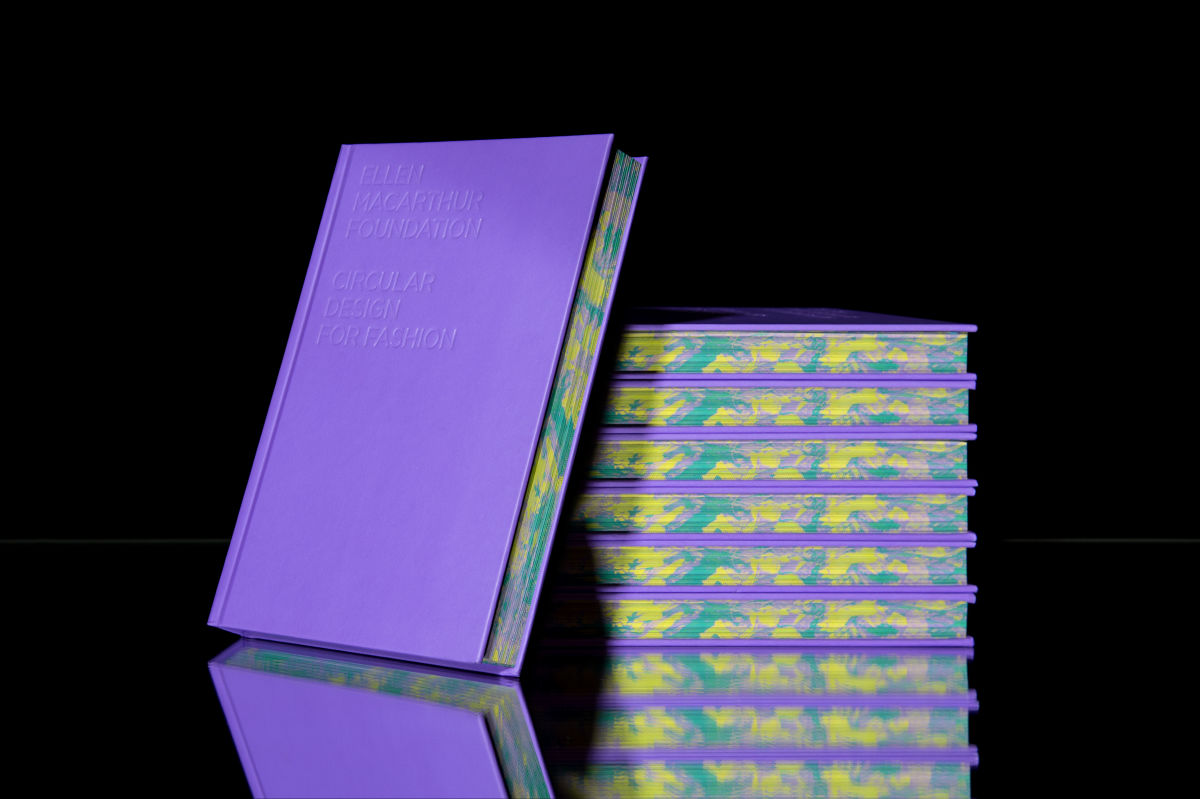Leading fashion brands and manufacturers are to transform the way they produce jeans, tackling waste, pollution, and the use of harmful practices, thanks to new guidelines published today by the Ellen MacArthur Foundation.
The Jeans Redesign Guidelines set out minimum requirements on garment durabilitydurabilityThe ability of a product, component or material to remain functional and relevant when used as intended., material health, recyclabilityrecyclabilityThe ease with which a material can be recycled in practice and at scale. and traceability. The guidelines are based on the principles of the circular economycircular economyA systems solution framework that tackles global challenges like climate change, biodiversity loss, waste, and pollution. It is based on three principles, driven by design: eliminate waste and pollution, circulate products and materials (at their highest value), and regenerate nature. and will work to ensure jeans last longer, can easily be recycled, and are made in a way that is better for the environment and the health of garment workers. The Jeans Redesign – created through the Ellen MacArthur Foundation’s Make Fashion Circular initiative – brought together more than 40 denim experts from academia, brands, retailers, manufacturers, collectors, sorters and NGOs, to develop the Guidelines
Confirmed participants to date include Arvind Limited, BESTSELLER (through the VERO MODA brand),
Boyish Jeans, C&A, GAP, Hirdaramani, H&M Group (through the H&M and Weekday brands), HNST, Kipas, Lee®, Mud Jeans, OUTERKNOWN, Reformation, Saitex, Tommy Hilfiger. The Guidelines have also been endorsed by clothing collectors and recyclers Bank and Vogue, Circular Systems, EVRNU, HKRITA, I:CO, Infinited Fiber Company, Lenzing, Recover, re:newcell, Texaid, Tyton Biosciences LLC, Wolkat, and Worn Again. They have also been endorsed by the NGO’s Fashion Revolution and Textile Exchange.
The Guidelines build on existing efforts to improve jeans production, including the open source guide created following C&A and Fashion For Good’s joint initiative to develop C2C Gold Certified™ jeans. The Jeans Redesign will drive others to join the project and produce jeans in line with the Guidelines at scale The first pairs of the redesigned jeans will be on sale in 2020.
Make Fashion Circular lead Francois Souchet said: “The way we produce jeans is causing huge problems with waste and pollution, but it doesn’t have to be this way. By working together we can create jeans that last longer, that can be remade into new jeans at the end of their use, and are made in ways which are better for the environment and the people that make them. This is just the start. Over time we will continue to drive momentum towards a thriving fashion industry, based on the principles of a circular economy.“
ABOUT THE GUIDELINES
The respect of the health, safety, and rights of people involved in all parts of the fashion industry is a prerequisite, along with working conditions improvement in manufacturing globally. Beyond this, the Guidelines provide minimum requirements for jeans on durability, material health, recyclability, and traceability.
Durability
Jeans should withstand a minimum of 30 home laundries, while still meeting the minimum quality requirements of the brands
Garments should include labels with clear information on product care
Material Health
Jeans should be produced using cellulose fibres from regenerative, organic or transitional farming methods
Jeans should be free of hazardous chemicals and conventional electroplating. Stone finishing, potassium permanganate (PP), and sandblasting are prohibited
Recyclability
Jeans should be made with a minimum of 98% cellulose fibres (by weight)
Metal rivets should be designed out, or reduced to a minimum
Any additional material added to the jeans, should be easy to disassemble
Traceability
Information that confirms each element of the Guideline requirements has been met should be made easily available
Organisations that meet the requirements will be granted permission to use the Jeans Redesign Logo on jeans produced in line with the Guidelines
Jeans Redesign Logo use will be reassessed annually, based on compliance with reporting requirements
For further information and to arrange an interview with the Ellen MacArthur Foundation or participating organisations please contact Leah Lefco at leah@bpcm.com
Notes to Editor
About Make Fashion Circular
Make Fashion Circular was launched by UK charity the Ellen MacArthur Foundation at the Copenhagen Fashion Summit 2018. It brings together leaders from across the fashion industry, including designers, brands, cities, philanthropists, NGOs, and innovators. It is leading international efforts to stop waste and pollution in fashion by creating a circular economy for the industry, where clothes are made from safe and renewable materialsrenewable materialsMaterials that are continually replenished at a rate equal to or greater than the rate of depletion., new business models increase their use, and used clothes are turned into new ones.
To Make Fashion Circular, businesses, governments, innovators, and citizens need to join forces. Make
Fashion Circular brings together industry leaders including Burberry, Gap Inc., H&M, HSBC, NIKE Inc., and Stella McCartney as Core Partners. Make Fashion Circular is supported by Philanthropic Partners C&A Foundation, MAVA Foundation, and players of People’s Postcode Lottery.
About the Ellen MacArthur Foundation
The Ellen MacArthur Foundation was launched in 2010 to accelerate the transition to a circular economy. The Foundation works across seven key areas: insight and analysis; business; institutions, governments, and cities; systemic initiatives; circular design; learning; and communications. With its Knowledge Partners (Arup, Dragon Rouge, IDEO and SYSTEMIQ), the Foundation works to quantify the economic opportunity of a more circular model and to develop approaches for capturing its value.
The Foundation collaborates with its Global Partners (Danone, DS Smith, Google, H&M Group, Intesa Sanpaolo, Philips, Renault, SC Johnson, Solvay, Unilever), Core Philanthropic Funders (SUN, MAVA, players of People’s Postcode Lottery (GB)) and its CE100 network (businesses, universities, emerging innovators, governments, cities, affiliate organisations), to build capacity, explore collaboration opportunities and to develop circular business initiatives. www.ellenmacarthurfoundation.org | @ellenmacarthurfoundation






